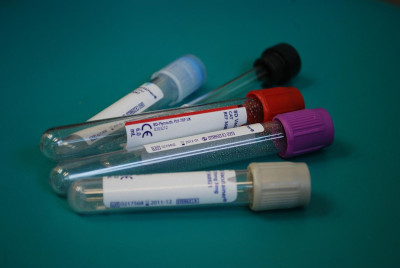Ipertermia e cisplatino nel cancro della prostata
 In questo articolo vengono delucidati i meccanismi biochimici sottesi all'effetto sinergico importante tra ipertermia oncologica e cisplatino nelle neoplasie della prostata
In questo articolo vengono delucidati i meccanismi biochimici sottesi all'effetto sinergico importante tra ipertermia oncologica e cisplatino nelle neoplasie della prostata
Dr. Carlo Pastore
Biochem Biophys Res Commun. 2016 Aug 11. pii: S0006-291X(16)31316-X. doi: 10.1016/j.bbrc.2016.08.060. [Epub ahead of print]
Molecular mechanisms of synergistic induction of apoptosis by the combination therapy with hyperthermia and cisplatin in prostate cancer cells.
Zhang JF1, Yan XM1, Lan B2, Lei YR2, Li XH3, Gao S4, Guo YF5, Guo F6.
Author information
Abstract
Prostate Cancer has become the second leading cause of male cancer-related incidence and mortality in United States. Hyperthermia (HT) is known to serve as a powerful tool in treatment of prostate cancer in clinical. The combination treatment with HT and cisplatin has a synergistic effect to inhibit prostate cancer progression and demonstrates better clinical effectiveness than HT or chemotherapy alone. But molecular mechanisms of this phenomenon have not been illuminated clearly. In this study, we used MTS assay to examine cell viabilities of PC-3, LNCaP, DU-145 and RM-1 cells after treated by HT and cisplatin. Then colony formation of PC-3 and DU-145 cells after treated with HT and cisplatin were photographed. To investigate whether the combination therapy would enhance apoptosis of PC-3 and DU-145 cells, we used Western blot analysis to detect expression level of proteins on apoptosis-regulated signaling pathway in PC-3 and DU-145 cells. Our results showed that the combination treatment decreased cell viabilities and colony formation of prostate cancer cells in a dose-dependent manner and this combination therapy enhanced apoptosis of PC-3 and DU-145 cells via activation of Caspase-3 and cleavage of PARP. We also found that the combination therapy could down-regulate the anti-apoptotic Bcl-2 and IAP family proteins. At last, the combination therapy activated AMPKα-JNK signaling pathway and inhibited Akt-mTOR-p70s6k signaling pathway to promote apoptosis of PC-3 and DU-145 cells. In conclusion, this study clearly elucidated how the combination therapy with HT and cisplatin promoted apoptosis of prostate cancer cells in synergy.

 RSS
RSS 



